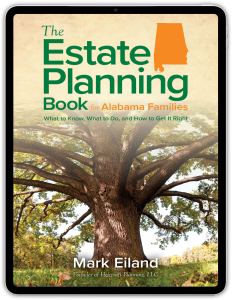
Probate Is Public: How to Keep Your Family’s Affairs Private
Most people assume probate — the process of collecting, managing, and distributing a deceased person’s money and property — is a private matter. In reality, probate involves the court system, and most filings become part of the public record. That means anyone, even your nosy neighbor Nellie, can stroll into the courthouse or go online to see what’s in your will, who will inherit, and even the value of accounts and property passing through probate.
Probate Isn’t Private
When someone dies, most states require whoever has the will to file it with the probate court within a certain time period — even if no court proceedings take place. Probate information then becomes accessible not just to Nellie, but to anyone who wants to look.
Some people may be curious but harmless, while others may use this public information to exploit your loved ones.
Who Can See Your Probate (and Why It Matters)
Financial predators
Scammers often comb public probate records for opportunities. They may submit fake invoices or make false claims that the estate owes money. The court process often moves slowly, so months may pass before anyone realizes beneficiaries have been cheated.
Example: Imagine your son receives a notice from a supposed “contractor” claiming your estate owes $15,000 for unfinished work. By the time the claim is proven false, your beneficiaries have spent time, stress, and money fighting it.
Charities
Even well-meaning charities sometimes pressure heirs after learning about inheritances through probate filings. Beneficiaries may receive repeated calls or letters urging them to “do the right thing” by donating.
Will challengers
A will filed with the probate court becomes public record, opening the door for distant relatives or others who believe they should benefit. Even frivolous claims cost your estate time and money to defend.
Aggressive salespeople
Certain real estate agents, insurance agents, and financial advisors track probate filings to target heirs. Vulnerable beneficiaries may be persuaded to sell property below market value or buy unnecessary financial products.
How a Trust Protects Your Privacy
Unlike wills, trusts are not typically filed with the court unless someone challenges them — and in many cases, not even then. Trust documents generally remain private, available only to the beneficiaries named. Courts usually stay uninvolved, so busybodies and predators cannot gain easy access.
Families who use trusts avoid unnecessary stress while keeping sensitive information out of public reach. Creating a trust is one of the most effective ways to ensure financial and personal matters remain private.
Keep Your Family’s Business Private
Probate is public. Trusts are private. The contrast is that simple. Families who want to protect loved ones from nosy neighbors, pushy charities, scammers, and opportunists need to plan ahead.
Contact us today to create a trust that keeps your legacy safe — and your family’s business out of public view.


